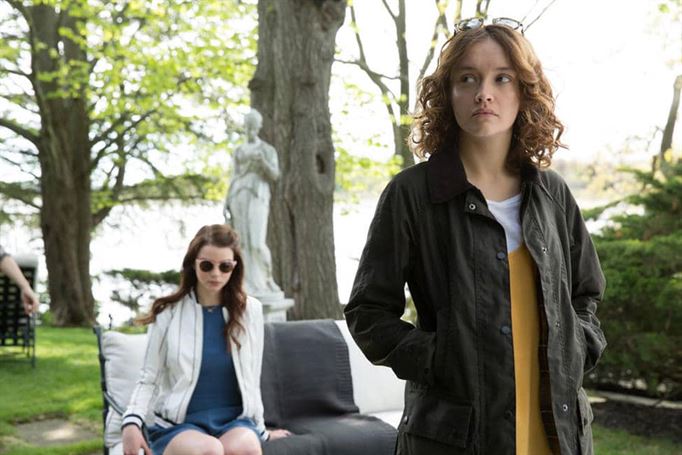With a clever, humorous screenplay backed by the solid performances of its young cast, “Thoroughbreds” proves to be an unconventional viewing experience that will keep audiences invested while serving as a strong debut for the young filmmaker at its helm.
“Thoroughbreds” is the directorial debut of writer and director Cory Finley. The film stars Olivia Cooke and Anya Taylor-Joy as Amanda and Lily respectively, two teenage girls living in upper-class Connecticut. Amanda has come to the conclusion that she cannot feel anything. On the other hand, Lily feels too much.
Amanda and Lily were best friends growing up but have grown apart in recent years. However, following an incident where Amanda kills her family horse, Lily begins to tutor her for the upcoming SATs. They soon hit it off again, resulting in the two rekindling their peculiar friendship.
Lily introduces Amanda to Mark, her stern and emotionally-abusive stepfather. Upon realizing that Lily hates her stepfather, Amanda proposes that they kill him. Lily is at first repulsed by and rejects the sinister idea, but when Mark reveals that he is sending her away to a boarding school for teenage girls needing emotional help, she agrees to the proposition.
Amanda and Lily enlist the help of Tim, played by Anton Yelchin. Tim is a small-time drug dealer in his late twenties who sells drugs to high students while working as a dishwasher at a nursing home. He still lives with his parents, but constantly mentions how he will soon be “running the game” in five to 10 years’ time.
“Thoroughbreds” also serves as Yelchin’s final film before his untimely death. Yelchin died due to blunt traumatic asphyxia in 2016 exactly two weeks after the final day of filming.
The core of the film is built around Finley’s screenplay and the characterizations of the film’s two leads. One of the film’s taglines states, “Amanda feels nothing. Lily feels everything.” As the line suggests, the two characters are virtually polar opposites. One is emotionless while the other is emotional.
This makes for hilarious yet engulfing conversations between the two throughout the length of the movie. It also makes Amanda and Lily’s friendship seem improbable while at the same time making sense. Amanda doesn’t appreciate when others lie to her to avoid hurting her feelings. After all, she has none. Lily does not like how she has to hide how she truly feels in front of others. Lily can be as open as she wishes with Amanda without fear of repercussions while Amanda can finally get the honesty she craves from a friend in Lily. It’s this strange relationship that drives the on-screen chemistry that no moviegoer can deny.
These characterizations would amount to nothing if they hadn’t been performed so well by the actresses portraying them. However, Olivia Cooke as Amanda particularly stood out. It must be difficult enough already to portray another person and capture their emotions. Now imagine having to portray a character that is completely void of emotions. This is no easy task, but Cooke manages to nail the role right on the head.
“Thoroughbreds” separates itself from other films through the atmosphere it creates. Much of the film takes place in grand, spacious homes of Connecticut’s upper-class citizens, especially the mansion Lily lives in with her mother and stepfather. Scenes of lawn mowers racing across giant front lawns, people playing with lawn chess sets and long shots of people maneuvering through labyrinths of hallways contradict the dark themes of the film. Finley manages to hide the sinister thoughts of the characters behind the walls of their wealthy homes.
All these elements combine to create a cinematic experience that is fun and vibrant while also managing to be creepy and uncomfortable at times. Audiences will be laughing hysterically one moment, and silent in shock the next. They will find themselves eagerly anticipating what is to come while also dreading it. With its own demented modification of the classic theme, “Money can’t buy happiness,” this film does a great job of blending genres together while also serving as a launchpad for the bright futures of its young stars, both on-screen and behind the camera.



